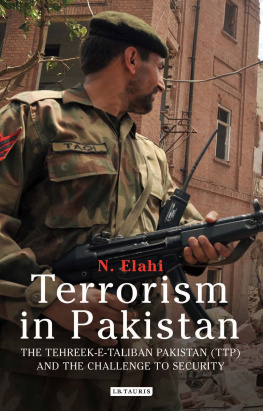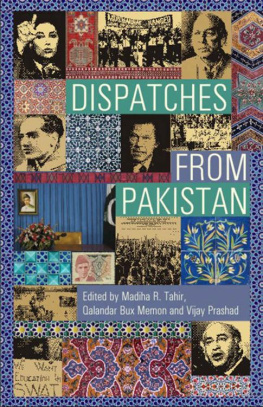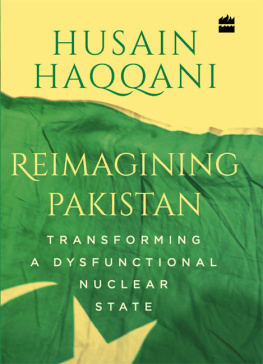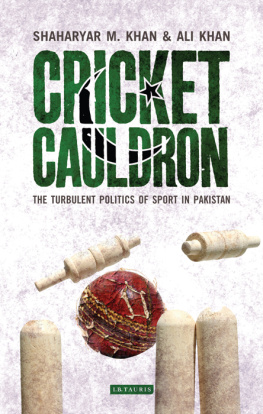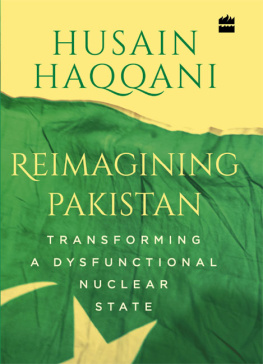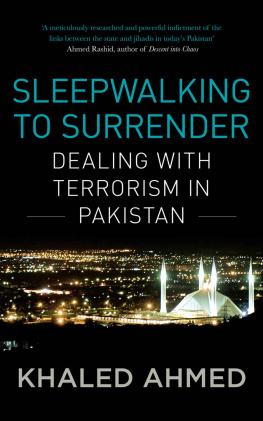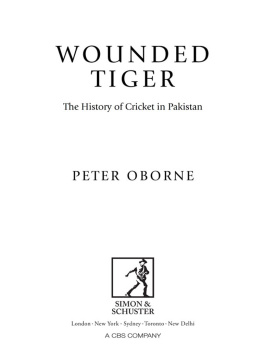Pakistan Under Siege
Extremism, Society, and the State
MADIHA AFZAL
BROOKINGS INSTITUTION PRESS
Washington, D.C.
Copyright 2018
THE BROOKINGS INSTITUTION
1775 Massachusetts Avenue, N.W., Washington, D.C. 20036
www.brookings.edu
All rights reserved. No part of this publication may be reproduced or transmitted in any form or by any means without permission in writing from the Brookings Institution Press.
The Brookings Institution is a private nonprofit organization devoted to research, education, and publication on important issues of domestic and foreign policy. Its principal purpose is to bring the highest quality independent research and analysis to bear on current and emerging policy problems. Interpretations or conclusions in Brookings publications should be understood to be solely those of the authors.
Library of Congress Cataloging-in-Publication data are available.
ISBN 978-0-8157-2945-7 (pbk.: alk. paper)
ISBN 978-0-8157-2946-4 (ebook)
9 8 7 6 5 4 3 2 1
Typeset in Galliard
Composition by Westchester Publishing Services
To my parents
Farkhanda and Wasim
And my husband and son
Salik and Amahl
Contents
Preface
Over the last ten years, tens of thousands of Pakistani civilians and security forces25,051 by one counthave been killed in terrorist attacks conducted by the Pakistan Taliban and other militant groups. Is terrorism in Pakistan a manifestation of a society moving toward radicalism or one victimized by terrorist groups created by geopolitics? Are ordinary Pakistanis extremists?
In the West, Pakistan is characterized as a villainous, failing state that created a terrorism monster and does not do enough to fight it; it is, thus, blamed for the hazards its citizens face as well as the danger it poses to the rest of the world. Its citizens are thought to be irrational fundamentalists. This book takes issue with that characterization. Pakistan has its demons and more, no doubt, but it has come to be defined exclusively in terms of its present struggle with terror, by the jihadist training camps in Pakistan, and the links of some Pakistanis to attacks in the West. Its story is far more complex.
In this book, I lay out the imperatives facing the Pakistani state, its strategic (mis)calculations, the attitudes of Pakistani society, and the countrys turn toward extremism. I show how the Pakistani state has helped foster militancy in the country and how the exclusionary nature of Pakistans Islamizationundertaken by the state more for strategic than ideological reasons, as part of its nationalist projecthas mainstreamed extremist narratives. The Pakistani state has done this through manipulating the countrys laws and education system. The state could not have imagined the enormous ramifications of these choices on Pakistans society and on its security.
Pakistani society is multi-dimensional, but the world is most likely to see images of anti-American mobs or crowds who show up at rallies held by Islamist fundamentalists. On the other end of the spectrum is a liberal intelligentsia whose members, while small in number, have a significant voice in Pakistan, although one not often heeded in policy. And a large group of its citizens holds the middle ground.
What do average Pakistanis think of terrorists, of jihad, of militant groups? Are their views radical? In this book, I describe Pakistanis views as understood from the results of surveys and interviewsincluding their views of terrorist groups and their understanding of their countrys present struggle with terror, their views of religious minorities and non-Muslims, their perceptions of places beyond their country, and their understanding of their place in this world.
What explains how Pakistanis think? How has the Pakistani stateits politics, laws, and institutionsaffected the trajectory of violent extremism in Pakistan and shaped its citizens attitudes toward terrorism? Pakistans politicsembodied in the interrelationship of its military, its democratic government, and its Islamist partiesdefines the relative strength of these three power players; I identify the role each has played in Pakistans slide toward extremism through each players actions, narratives, and relationship with militant groups. I trace the evolution of Pakistans laws and show a direct relationship between the regression of these laws and worsening citizen attitudes.
The Pakistani state has used its education system as a vital pawn in shaping its citizens thinking. I identify the role that educationeducation in terms of years in school, of curricula in public and private schools, and of the much-maligned madrassa system, which is often blamed for fostering extremism in Pakistanplays in defining attitudes on extremism. I do this through quantitative analysis of survey data, interviews with students in schools and colleges, and an in-depth study of textbooks and teaching.
Much of the current work on extremism in Pakistan tends to look at it from a detached position, from a top-down security perspective, limited to the actions of the state with little focus on how those actions affect the ordinary Pakistani. The historical underpinnings of the states actions are too often ignored. We are left with a one-dimensional picture of a complex, richly textured country of 200 million people. In this book, using rigorous analysis, interviews, and a historical narrative, I fill out the picture of Pakistans relationship with extremism. The methodological approach is novel. In the end, I hope to convince the reader that there is hope yet for this beleaguered nation.
Acknowledgments
This book is the culmination of several years of my research and writing on extremism, education, and politics in Pakistan. I would like to thank the people who helped me along the way here, as well as organizationswith my apologies in advance if I inadvertently miss some names.
The U.S. Institute of Peace (USIP) provided the initial research grant for my school fieldwork (in early 2013). Officials at the Punjab textbook board and at the curriculum wing in Lahore and in Islamabad helped me understand the curriculum landscape in Pakistan in a way that no official documents could. The Punjab education department facilitated visits to government high schools. Administrative officials at public, private, and nonprofit schools graciously allowed me and my team of two research assistants to spend days at their schools; teachers kindly let us sit in on their classes and generously gave their time for interviews. Mehwish Rani and Mohammad Ali were my wonderful, intrepid research assistants during the fieldwork. Above all, I want to thank the high school and university students who engaged in focus group discussions with usI am immeasurably grateful for their openness with their views, for their willingness to give so much of their time to us, and for their generosity of spirit.
Over the years, I have presented various aspects of this work at universities and research institutions and have benefited greatly from the comments and questions of those in the audience, including presentations at multiple seminars at the public policy school at the University of Maryland (UMD) and a particularly helpful workshop at UMDs Department of Government and Politics in November 2016. Other events at the following institutions have been invaluable: Wilson Center, Center for Global Development, USIP, Brookings, University of CaliforniaSan Diego, College of William and Mary, and the Center for Economic Research in Pakistan.
I have also written about some of this work in newspapers and online publicationsespecially the Express Tribune ; Brookings blogs; Foreign Policy ; Newsweek ; Cairo Review ; the Washington Post Monkey Cage blogand have published two longer, related pieces as well: my USIP special report on education and attitudes in Pakistan; and a chapter in the Routledge Handbook of Contemporary Pakistan on curricula in elite and public schools. The publication of these articles, both short and long, helped clarify my thinking, and I profited from the feedback of readers.
Next page

